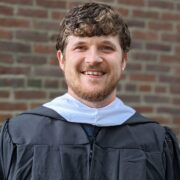Why We Need Humility and Courage to Be Truly Wise
The greatest books and the best Socratic questions are rendered powerless if our students do not possess the right virtues.

As Classical educators, we direct great time and energy toward selecting and discussing the right books. Every year we reevaluate our curriculums and reading lists; we listen to podcasts and read articles and talk with friends, trying to discern which books our children and students should be reading and discussing. We also spend time cultivating the right conversations about these books, asking the right questions, and helping our students learn the right conversational habits. These conversations—either one-on-one or in a classroom—are just as important as the books our students are reading, as we all know. But in my years teaching and discussing great books, I’ve come to realize that the greatest books and the best Socratic questions are rendered powerless if our students do not possess the right virtues. While all of the virtues are helpful in becoming an educated human being, the two that seem most essential to the learning process are humility and courage.
Every semester I begin by reminding my students that the two greatest impediments to the learning process are pride and fear. In a simplistic way, we can place many of our students in one of these two categories. On the one hand, there are the prideful: the ones who talk too much and listen very rarely; the ones who think too highly of their own opinions; the ones who challenge others but seldom accept disagreement with their own ideas. On the other hand, there are the fearful: the students who hesitate to venture their own opinions; the ones who prefer to remain quiet, happy to have others risk their reputations on wrong opinions but never willing to risk it themselves. We all know these categories of students. But I think if we dig deeper, we can see that pride and fear are seldom so neatly separated. And as we come to understand more of how they are joined, we can come to see why these vices often threaten the learning process.
When we approach a book or a conversation in pride and fear—for let us all confess that these vices beset we teachers just as much as our students—we fail to allow the truth to make the necessary soul incision that leads to transformative learning. And this is exactly what truth is—a sword, a scalpel, an incisive tool that lays bare our ignorance and folly and disease so that we might be made whole, integrated, and enlightened. In fear, we retreat from the truth, for it threatens our sense of self. In pride, we fight against the truth, for we believe that truth is our enemy, not the friend who faithfully wounds us so that we might be healed.
Truth is a terrifying prospect, for it threatens our self-esteem, our self-assessment of our own being, our self-confidence. Truth not only shows us—and others—where we are wrong: it shows us where our own powers of self-perception have failed us. The way we have measured ourselves is faulty. Not only have we failed to account rightly for the nature of things outside of us—we have failed to understand our own self, our weaknesses and ignorance and faulty inner sight, our disease and disintegration and darkness. If the Delphic oracle is right that education begins with knowing ourselves, then learning is a terrifying prospect, indeed. We all know this intuitively, which is why we see that our students have many natural defense mechanisms against true learning.
The list of defense mechanisms—the things that we all do to retreat or combat the truth out of pride and fear—is long: silence, talking, ignoring, distracting, debating, deferring, not doing the reading, reading so that one can talk intelligently, trying to win the approval of one’s peers, etc. But for all of these external actions, there are internal motivations that are the true impediments to learning. Take silence, for example. Listening rather than talking can be an act of humility and courage: the willingness to learn rather than instruct, to be taught by others rather than to teach. But silence can also be an act of pride and fear, an unwillingness to venture one’s opinions because they might be wrong, an obstinate selfishness that turns the eyes inward, rather than toward the truth. Likewise, talkativeness can be an act of pride and fear: the constant defense of one’s own entrenched ideas or the arrogant belief that one has all the answers already within him. But talkativeness can also be a sign of humility, a keen desire for the truth, a willingness to risk being wrong. In The Man Who Was Thursday, Chesterton says, “it is always the humble man who talks too much; the proud man watches himself too closely.” The pursuit of truth can often be expressed by the willingness to share wrong opinions so they can be made right. For both the quiet and the talkative student, what is most important is not that they talk a certain amount, but that they be courageous and humble in the way they approach their reading and their discussions.
All this means that instructing our students on certain forms of conduct does not necessarily facilitate true learning. It is fundamentally a matter of the internal workings of the heart. While certain decorum and proper classroom habits are important for the learning process, it is of greater importance that we help our students exercise courage and humility in their pursuit of the truth. They must have the courage to be wrong, to listen to ideas that seem to threaten their ideas and their very sense of self. They must have the humility to change their mind, to venture a wrong opinion, to stand underneath an idea so that they might truly understand. And what better way to help our students grow in these virtues than by cultivating humility and courage in our own souls? For as Aristotle says, we all learn through imitation. And did our Savior not walk this path before us, in courage and humility taking human flesh, being born among lowly men, that he might lead us into Truth?

Nathan Johnson
Nathan Johnson is a Professor of Moral Philosophy and the Trivium at New College Franklin in Franklin, TN. For 6 years he taught humanities and composition at Greyfriars Classical Academy in Matthews, North Carolina. He earned a B.A. in English Literature from Bryan College and two master’s degrees in Bible and Theology from Reformed Theological Seminary. He also holds a master’s degree in Liberal Arts at St. John’s College and is currently working on a Ph.D. in Humanities (with an emphasis in literature) at Faulkner University. He writes regularly at tremendoustrifles.com.











1 thought on “Why We Need Humility and Courage to Be Truly Wise”
I happened across this article today in a google search of the words humility and courage. I have been meditating on Matthew 18:2-4, seeking to define the word ‘humility’ in my own words, and coming up with ‘apprehension with courage’. This piece is profound and written so eloquently. As a mom of grown children (one of whom I schooled classically in high school), embarking on a year-long course of study myself, it has both inspired and challenged me, giving me much food for thought. Thank you!